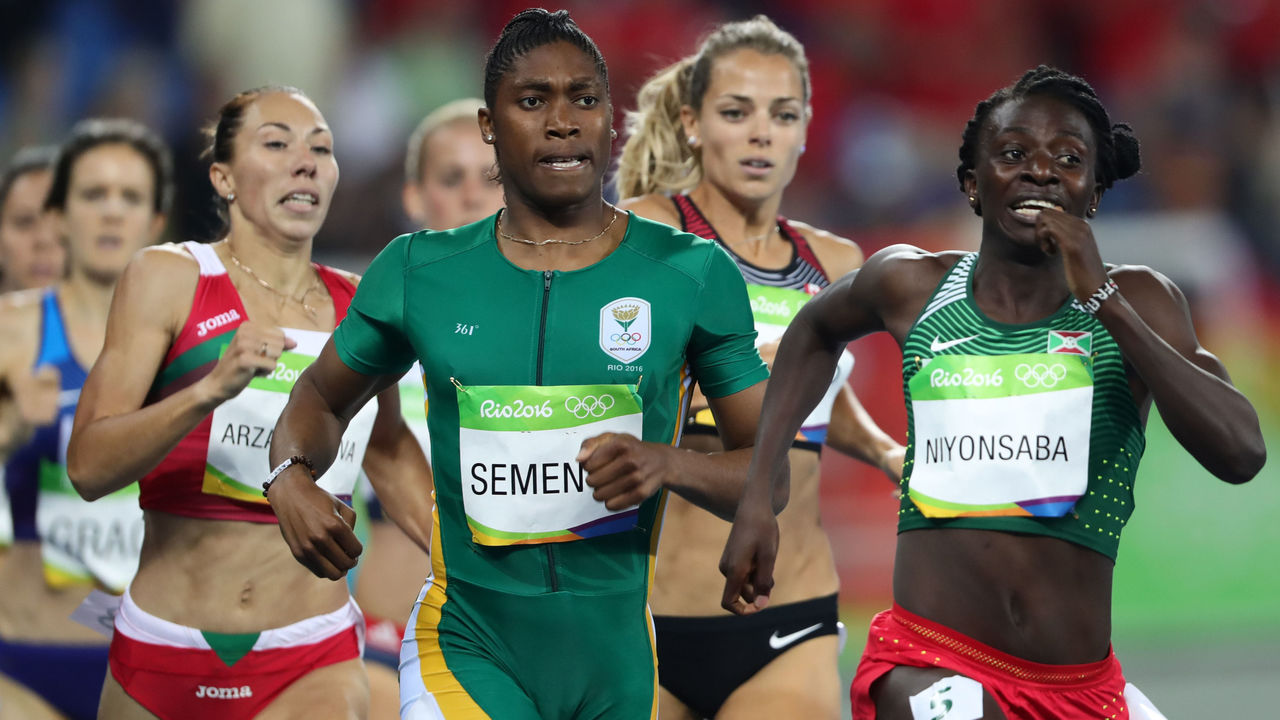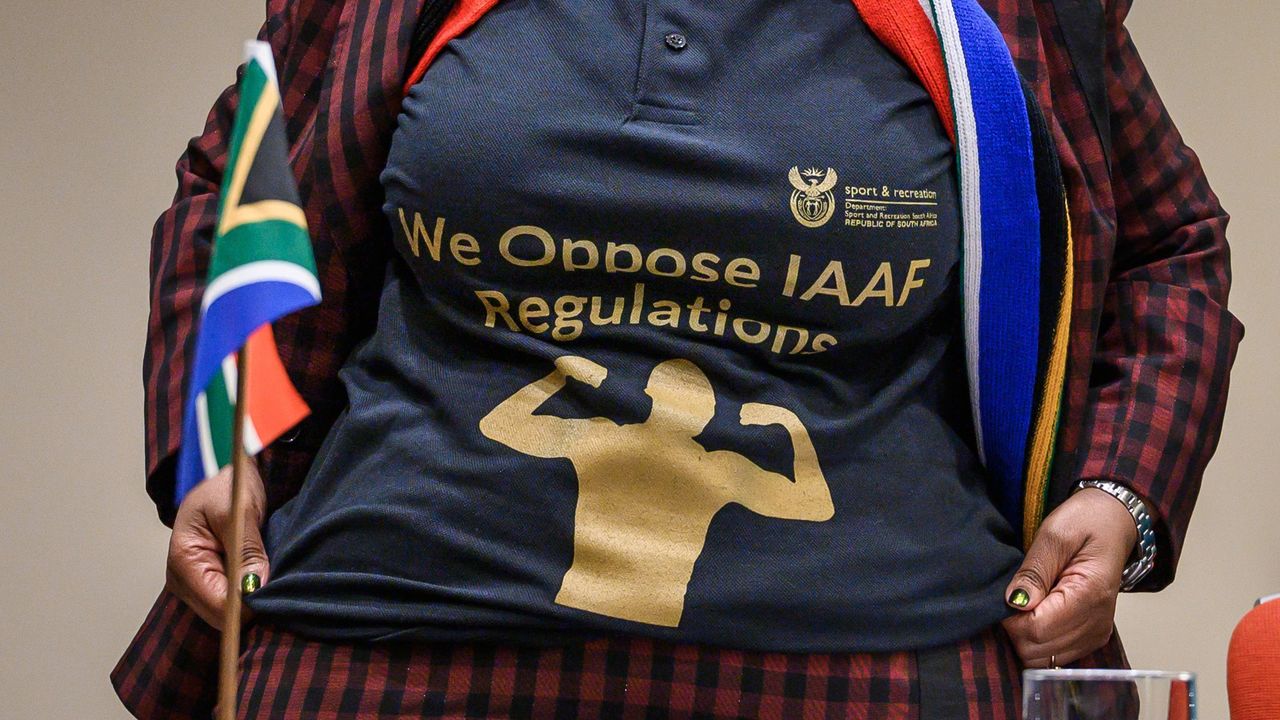Olympic champion Caster Semenya loses watershed appeal in fight against IAAF
Caster Semenya, the two-time defending Olympic gold medallist in the women's 800 meters, didn't compete in that event at the South African national championships last weekend.
Her absence from this particular race was self-imposed, which made it surprising. For much of the past decade, track's governing body - the International Association of Athletics Federations - has tried to foist conditions on Semenya's right to run at her signature distance. She entered the national meet keenly aware that in a week's time, the trajectory of her dazzling career could change irrevocably.
That concern proved founded Wednesday.

In a seismic decision, the Swiss-based Court of Arbitration for Sport ruled against Semenya's bid to prevent the IAAF from imposing a rule that will now force her to submit to testosterone-lowering treatment if she wants to keep racing in her main event.
Within moments of the decision, which landed shortly after 6 a.m. EDT (noon in Switzerland), Semenya reacted on her verified Twitter account with a picture that simply contained the words "Sometimes it's better to react with no reaction."
The rule, which was set to take effect November 2018, only affects runners with hyperandrogenism - excessive natural levels of male sex hormones - who compete in races between 400 meters and one mile. The IAAF contends athletes such as Semenya, labeled as Athletes with Differences of Sexual Development (DSD), have an unfair physical advantage over their opponents.
Believing the regulations to be discriminatory, Semenya and South Africa's track and field federation filed an appeal with the CAS. In siding against her, the tribunal's hotly anticipated judgment means Semenya, 28, must change in order to run at future Olympics and world championships and in other marquee 800-meter competitions.
The IAAF rule that will now take effect — compelling runners with DSD to medicate their testosterone levels to below 5 nanomoles per liter, which is still higher than the usual maximum in women of 2 nmol/L — promises to shake up the track world.

At the 2016 Summer Olympics in Rio de Janeiro, Semenya broke away from the field in the 800-meter final with a winning time of 1:55.28. At the worlds in 2017, she won in 1:55.16. Sports scientist Ross Tucker, who was part of Semenya's team of experts at the CAS hearing in February, predicts the IAAF's new policy could slow Semenya's times by five to seven seconds, imperiling her chances to qualify for elite finals.
The debate over testosterone rules in women's track boils down to dueling calls for fairness; the CAS was essentially tasked with deciding whose argument for it should prevail. Should Semenya's genetics, and her human rights, be respected? Or should leveling the playing field, the IAAF's stated motivation, be the paramount priority?
The ruling from CAS, which was described in a news release as being a majority decision from the three-person panel, came with some caveats. The panel expressed concern about the "future practical application of these DSD regulations." It said "constant attention" should be maintained over "the fairness of how the regulations are implemented."
Semenya isn't the only 800-meter runner whom the new rule affects. Burundi's Francine Niyonsaba, who finished second at Rio 2016 and at the 2017 world championships, recently told the Olympic Channel that she has hyperandrogenism and said she supports Semenya's position that the IAAF policy is discriminatory. So does the United Nations Human Rights Council, which has called the rule "unnecessary, harmful, and humiliating," and South Africa's government, which has accused the IAAF of racism.

On the flipside of the competitive equation are runners such as Britain's Lynsey Sharp, who finished sixth in the 2016 Olympic final in 1:57.69. In the lead-up to those Summer Games, Sharp told reporters that "two separate races" were being run in 800-meter finals, seemingly implying that she and the rest of the world couldn't catch Semenya and Niyonsaba because of their genetic composition.
Retired British marathoner Paula Radcliffe has been more explicit in her support of the IAAF rule. Radcliffe told Sky News two weeks ago that the CAS ruling in favor of Semenya would bring about "the death of women's sport" by empowering transgender athletes to compete in women's events without having to lower their testosterone.
The IAAF's involvement with Semenya goes back to 2009 when she stormed onto the global stage as a teenager by winning gold at the world championships in 1:55.45. The association revealed just after that it had insisted on gender verification tests, which kept her from competing until July 2010. In 2011, the IAAF sought to address hyperandrogenism by setting an upper testosterone limit of 10 nmol/L.
That ceiling was in place for the next four years, during which Semenya crossed the line second in the 2012 Olympic final in 1:57.23. (In 2017, her result was upgraded to gold when the original winner, Mariya Savinova of Russia, was disqualified for a doping offense.)

The CAS suspended that policy for two years in 2015 following a challenge from Indian sprinter Dutee Chand, who'd been barred from competing internationally. The court ruled that the IAAF didn't have sufficient evidence to link higher testosterone levels with improved performance.
In 2017, the IAAF claimed it had found such evidence, publishing research that suggested female athletes with higher testosterone had a considerable edge over their opponents, including a 2.7 percent advantage in the 400 meters and a 1.8 percent advantage in the 800 meters. (Some scientists have questioned the credibility of these figures.)
These findings underpinned the 5 nmol/L limit the IAAF announced last year. In a move that drew scorn from Semenya's supporters and other critics, the IAAF only applied this limit to the 400-meter, 800-meter, and 1,500-meter competitions, even though its research found that hyperandrogenic pole vaulters and hammer throwers enjoyed even greater advantages than middle-distance runners.
When Semenya launched her appeal, she said: "I just want to run naturally, the way I was born. It is not fair that I am told I must change."
The CAS ruling can be appealed within 30 days to the Swiss Federal Tribunal.
Aside from appealing, Semenya has two other alternatives beyond medicating her hormone levels: retire or devote herself to competing at 5,000 meters. She won the South African national championship at that distance last weekend — albeit in a time that was more than a minute off the gold-medal performance at the 2017 worlds.
Nick Faris is a features writer at theScore.